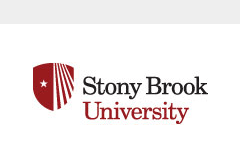Document Type
Full Paper
Location
Charles B. Wang Center
Event Website
http://www.centerfornewsliteracy.org/globalconference2017/
Keywords
news literacy, journalism, media, news, democracy, citizenship, independence, freedom of expression, censorship, critical thinking, critical reading, social fragmentation, digital natives, access, critical understanding, creative production, press freedom, public policy
Start Date
8-15-2017 9:00 AM
End Date
8-15-2017 10:30 AM
Description
The main challenge for a News Literacy program in Latin America is to reinforce democracy. After many years of strong military dictatorships, media literacy in this region should develop and strengthen students´ democratic culture and citizenship education. The other essential goal for News Literacy in Latin America is to break the social and cultural gaps –including critical reading skills- that exist between young people from privileged families and the ones who come from the poorest economic groups. The first step is to enact News Literacy as a public policy. There have always been teachers who taught students how to critically read media messages. When News Literacy becomes a public policy, however, the goal is to move beyond individual initiatives and turn these isolated efforts into state policy. The News Literacy Program in Argentina is a public policy run by the National State. Special initiatives and teacher training are essential for the development of the program. This paper will describe these initiatives and the ways they improve news literacy among students, by reinforcing democratic values and narrowing culture gaps.
Included in
News Literacy in Argentina; Commitment to Democracy
Charles B. Wang Center
The main challenge for a News Literacy program in Latin America is to reinforce democracy. After many years of strong military dictatorships, media literacy in this region should develop and strengthen students´ democratic culture and citizenship education. The other essential goal for News Literacy in Latin America is to break the social and cultural gaps –including critical reading skills- that exist between young people from privileged families and the ones who come from the poorest economic groups. The first step is to enact News Literacy as a public policy. There have always been teachers who taught students how to critically read media messages. When News Literacy becomes a public policy, however, the goal is to move beyond individual initiatives and turn these isolated efforts into state policy. The News Literacy Program in Argentina is a public policy run by the National State. Special initiatives and teacher training are essential for the development of the program. This paper will describe these initiatives and the ways they improve news literacy among students, by reinforcing democratic values and narrowing culture gaps.
https://commons.library.stonybrook.edu/cnlglobalconference/cnl2017/one/14

